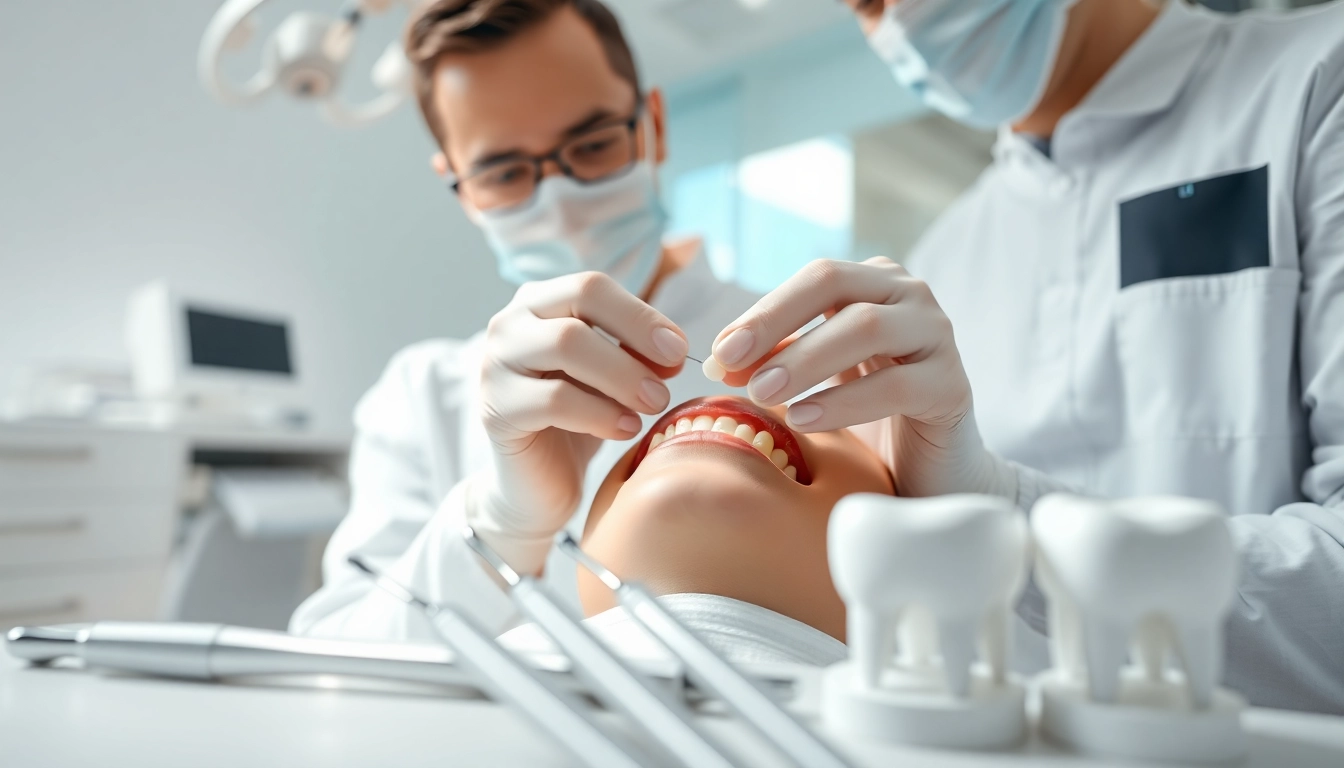The Basics of Dental Crowns
What is a Dental Crown?
A dental crown is a tooth-shaped cap that completely covers a damaged or decayed tooth, restoring its shape, size, strength, and appearance. Crowns are used in various dental treatments, including to protect weak teeth, hold together parts of a cracked tooth, or cover a dental implant or a tooth after a root canal procedure. This versatile dental restoration not only enhances functionality but also plays a crucial role in improving one’s smile.
Different Types of Crowns
Understanding the different types of dental crowns is essential for both patients and practitioners. Here are the most common types:
- Porcelain Crowns: Known for their aesthetic appeal, porcelain crowns blend seamlessly with natural teeth, making them ideal for front teeth restorations.
- Metal Crowns: Made from metals like gold or platinum, these crowns are extremely durable and are often recommended for back teeth due to their strength. They withstand chewing forces and have a longer lifespan compared to other materials.
- Porcelain-Fused-to-Metal Crowns: These crowns combine the strength of metal and the aesthetic beauty of porcelain. They are versatile and provide a good balance between durability and appearance.
- Resin Crowns: Less commonly used, resin crowns are typically a temporary solution due to their lower durability. However, they are more cost-effective and can be used while waiting for a more permanent solution.
Indications for Crowns
Crowns are indicated in various situations. Some common reasons for their placement include:
- Restoring a tooth damaged by decay or trauma
- Supporting a tooth with a large filling when there isn’t enough healthy tooth remaining
- Covering a discolored or misshapen tooth
- Protecting a weak tooth from fracturing
- Holding a dental bridge in place
- Capping a dental implant
The Procedure for Getting Dental Crowns
Initial Consultation and Diagnosis
The first step in the dental crown procedure is a consultation with your dentist. During this appointment, the dentist will examine your teeth, take X-rays if necessary, and discuss your symptoms to determine whether a crown is the best solution for your situation. They may assess the surrounding teeth and gum health to ensure that proceeding with a crown is safe and effective.
The Crown Preparation Process
Once a crown is deemed necessary, the preparation process begins. The dentist will remove any decay and shape the tooth to allow space for the crown. They may also take impressions of your teeth, which will be used to create a custom crown that fits perfectly. A temporary crown is often placed to protect the prepared tooth while the permanent crown is being fabricated, usually taking a couple of weeks.
Insertion and Aftercare of Crowns
When your permanent crown is ready, you’ll return to the dental office for its placement. The dentist will remove the temporary crown and ensure that the new crown fits comfortably before permanently cementing it in place. Following the insertion of the crown, aftercare is crucial to promote healing. This includes avoiding hard foods for the first few days and maintaining excellent oral hygiene practices.
Benefits of Dental Crowns
Restoration of Tooth Functionality
One of the primary benefits of dental crowns is their ability to restore the normal function of a tooth. After crowning, patients can enjoy full chewing capability without pain or discomfort. This improvement in functionality greatly enhances the quality of life, allowing individuals to eat their favorite foods without concern.
Improvement in Aesthetic Appeal
Crowns significantly improve the aesthetic appearance of teeth. Porcelain crowns are particularly effective for enhancing smiles, as they can be color-matched to blend with the surrounding natural teeth. This can boost a person’s self-confidence and overall satisfaction with their smile.
Protection of Compromised Teeth
Dental crowns serve as a protective barrier for compromised teeth. By encasing a weak or damaged tooth, they help prevent further damage, fracture, or loss. This protective quality makes crowns an essential component of restorative dentistry.
Cost Considerations for Dental Crowns
Factors Influencing the Price of Crowns
The cost of dental crowns varies significantly based on several factors, including:
- The material used to create the crown (porcelain, metal, etc.)
- The complexity of the case and any preliminary procedures needed (e.g., root canal, buildup)
- The experience of the dentist and the geographical location of the practice
Insurance Coverage for Dental Procedures
Insurance coverage can significantly offset the cost of dental crowns. Many plans cover at least a portion of the procedure, provided it is deemed medically necessary. It’s essential for patients to check with their insurance providers to understand their benefits and any out-of-pocket costs they may incur.
Affording Your Crown Treatment
If insurance does not cover the full cost of treatment, there are various financing options available. Many dental practices offer payment plans or financing solutions that allow patients to spread the expense over time, making dental care more accessible. Additionally, discussing different crown material options with your dentist can help you determine a more cost-effective solution.
Caring for Your Dental Crowns
Daily Oral Hygiene Practices
Maintaining oral hygiene is crucial for the longevity of dental crowns. Patients are advised to brush at least twice daily and floss daily, using gentle techniques around the crowned area to prevent gum irritation. An antibacterial mouthwash can further contribute to overall oral health.
Regular Dental Check-ups
Regular dental visits are vital for monitoring the condition of crowns and surrounding teeth. Your dentist will evaluate the integrity of the crown, checking for any wear or changes that may indicate the need for future intervention. Routine check-ups help in early detection of problems, ensuring that your investment in dental crowns lasts as long as possible.
Recognizing When to Seek Help
Patients should be proactive in recognizing potential issues with their dental crowns. Signs that something may be wrong include persistent pain, sensitivity, or visible cracks and chips in the crown. Should any of these symptoms arise, immediate consultation with a dentist at crowns is recommended to address the issue before it escalates.



